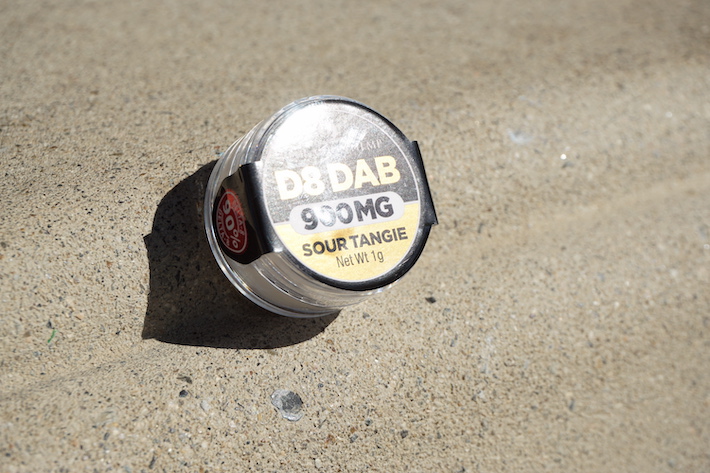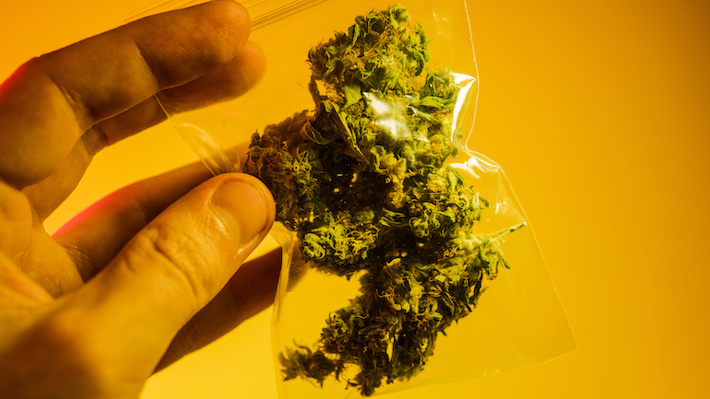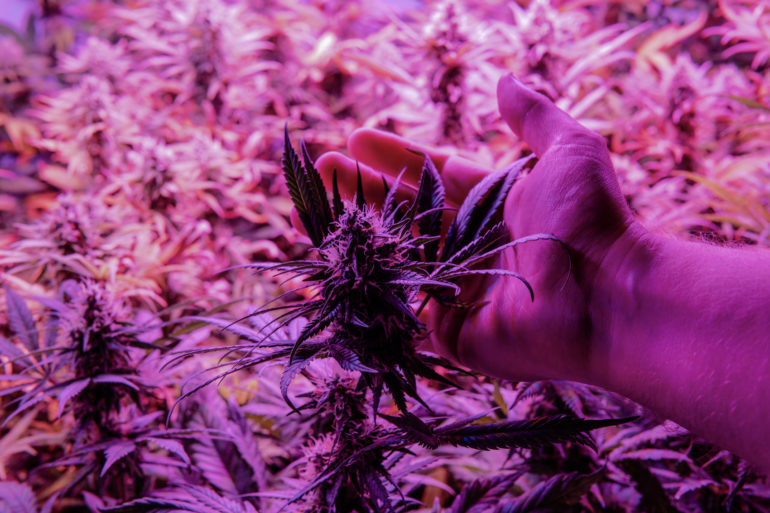Delta-8 THC is completely illegal in Idaho, because any THC in a finished product is illegal in all situations, unless you’re a licensed hemp producer with a crop in progress.
Idaho is one of the most hostile states to cannabis overall, with no medical marijuana program and a hemp program that barely limped over the boundary to legal CBD a couple of years after most states had passed their bills.
Here’s what you need to know about hemp law in Idaho.
Is Delta-8 THC Legal to Sell in Idaho?
Delta-8 THC is not legal in Idaho, because any THC present in a product makes it illegal to sell in Idaho. Only products like CBD oil which contain no THC at all are legal.
Idaho’s hemp law isn’t like the law in most other states. While House Bill (HB) 126 created a hemp program in the state and defined “hemp” (page 1, lines 34-39/section 22-1703(3)) in the same way as the 2018 federal Farm Bill, it didn’t exempt everything in “hemp” from the definition of “marijuana” in the same way as other states did.
In the exemption for marijuana, the bill states (page 7, lines 21-28/section 37-2701(t)) that unless you have a license, evidence that the plant material “contains any of the chemical substances classified as tetrahydrocannabinols shall create a presumption that such material is “marijuana” as defined and prohibited herein.”
In other words, you need to be licensed by the state Department of Agriculture to process or handle anything with any THC in it. Without the license, it will be presumed to be marijuana. In a later section addressing transportation of industrial hemp (page 17, lines 9-13/section 67-2921(5)), the bill makes things clearer, “It is unlawful for any person to knowingly possess industrial hemp without a license,” unless you’re transporting it for a licensee.
In short, the only way to legally possess hemp without a license is if it has no THC whatsoever, and if it was made from the mature stalks or seeds of the plant.
RELATED: Delta-8 THC Legality by State
Delta-8 THC Legislation Timeline for Idaho
Idaho is one of the only US states to disallow all quantities of THC (including delta-8) in hemp-derived products, including CBD oils, topicals, and lotions. In fact, after the passing of the federal Agriculture Improvement Act (Farm Bill), which legalized hemp and hemp-derived compounds across all 50 US states, Idaho did not establish its own regulatory framework also legalizing hemp and hemp compounds on the state level.
An opinion statement from the Idaho Attorney General, published in 2015, states:
“Assuming cannabidiol does not contain any THC (which is more than the undersigned knows), in order to not be deemed “marijuana” under Idaho Code §37-2701(t), it must be derived or produced from (a) mature stalks of the plant, (b) fiber produced from the stalks, (c) oil or cake made from the seeds or the achene of such plant, (d) any other compound, manufacture, salt, derivative, mixture, or preparation of the mature stalks, or (e) the sterilized seed of such plant which is incapable of germination.”
It wasn’t until April 16, 2021, that Idaho finally allowed the production and cultivation of hemp with the passing of House Bill 126. However, despite this, all THC isomers, including delta-8, delta-10 THC, and HHC, are classed as Schedule I controlled substances under the state’s Controlled Substances Act. The law creates a very limited exemption, but states (page 7, lines 21-28/section 37-2701(t)) that if you aren’t a licensed Idaho hemp producer, plant material or an extract with any THC present is presumed to be marijuana.
This was all later reinforced by John McKinney, a senior attorney at the Idaho Office of the Attorney General with over 12 years of writing opinions on drug laws in the state. In a 2019 podcast, he says:
The substance cannot contain any quantity of THC, which is the psychoactive ingredient in marijuana that gives the high recreational users are seeking. Even a trace amount of THC in any substance makes it illegal.
Attorney John McKinney
Can Delta-8 THC Be Added to Food?
You cannot add delta-8 THC to food in Idaho. Delta-8 THC is illegal in all situations and Idaho only allows food made from hulled hemp seed, hemp seed protein powder and hemp seed oil. It is also federally illegal to add delta-8 THC to food introduced into interstate commerce.
Can You Buy Delta-8 in Idaho?

No, you cannot purchase delta-8 in Idaho. Both hemp and marijuana-derived delta-8 are illegal and considered controlled substances under the state’s Uniform Controlled Substances Act.
Any physical retail stores selling delta-8 products are breaking the law and will likely end up in trouble with the cops. Likewise, no online delta-8 stores currently ship into the state.
If you see delta-8 products being sold in Idaho, we recommend you don’t purchase them under any circumstance. The use, possession and purchase of delta-8 is illegal under Idaho state law.
Delta-8 Alternatives You Can Legally Buy in Idaho
You cannot buy any alternatives to delta-8 THC legally in Idaho. You can’t buy anything with any THC in it, period.
Are There Age Restrictions on Delta-8 THC Products?
Delta-8 THC products are not legally sold in Idaho, so there are no specific age restrictions. Any illegal sellers probably wouldn’t be particularly interested in checking IDs.
Can You Consume Delta-8 THC in Public in Idaho?
No, you can’t possess delta-8 THC in any situation in Idaho, so public use would get you a possession charge.
Can You Drive Under the Influence of Delta-8 THC in Idaho?
No. Idaho law prohibits driving under the influence of “any intoxicating substances,” which includes delta-8 THC.
Idaho’s law on driving while under the influence includes the phrase “any intoxicating substance” and so there is no technicality that would even arguably exclude delta-8 THC from it.
Punishment in the first instance includes up to six months in jail, a fine of up to $1,000, be suspended from driving for at least 30 days (plus between 60 and 150 days with restricted privileges) and having an ignition interlock device fitted on your vehicle for a year,
Can You Travel to Idaho With Delta-8?

No, you cannot travel to Idaho with hemp-derived delta-8 products in your possession. Under no circumstances should you attempt to import delta-8 products into the state either.
Possession of delta-8, which is a Schedule I controlled substance, is a misdemeanor punishable by up to one year in prison and a maximum $1,000 fine.
Closing Thoughts: The Future for Delta-8 in Idaho
Delta-8 THC has no future in Idaho without a massive overhaul of the state’s hostile approach to cannabis and hemp. It’s likely that the 2023 Farm Bill will make changes that mean delta-8 THC will never be legalized as hemp in Idaho.
The main hope for any legal access to any marijuana in the near future in Idaho is likely a rescheduling of the drug from the federal government. Even medical marijuana bills struggle to advance through the legislature, leaving Idaho as one of the two states without any type of medical cannabis program. In short, it’s going to be a long road for cannabis advocates in the state.
